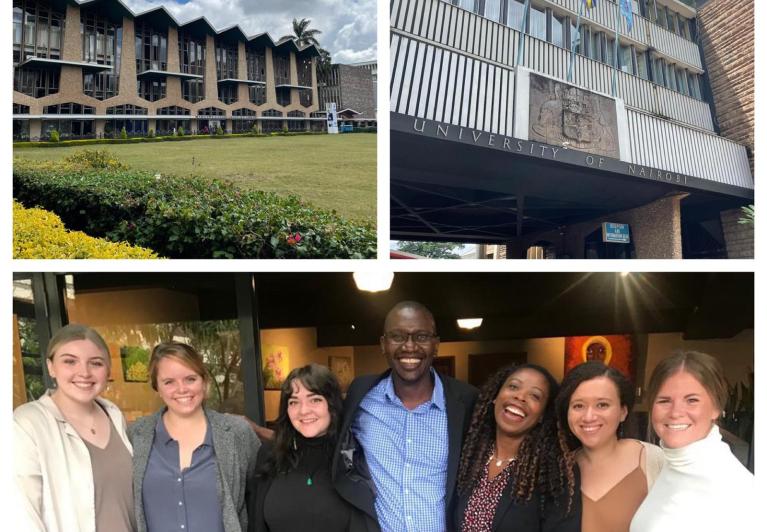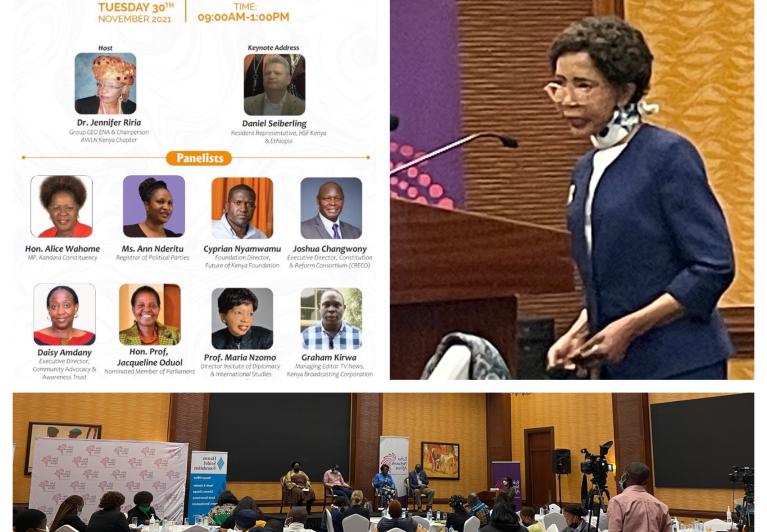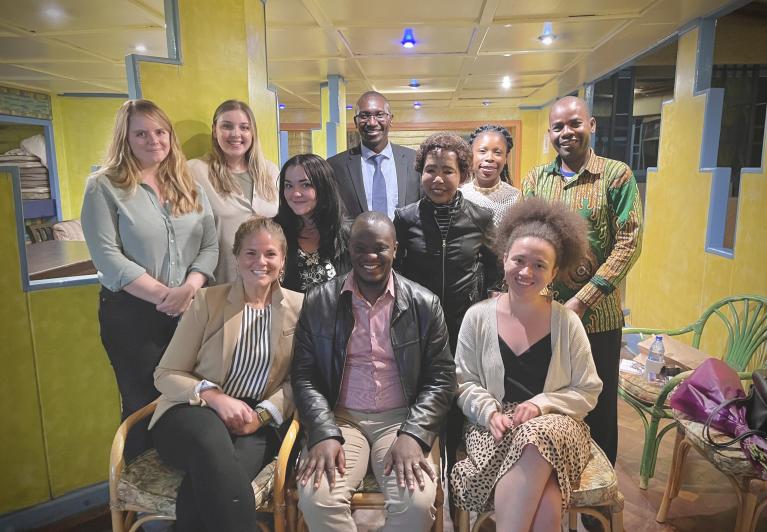Kenya Trip Brings Practicum Experience and Unforgettable Memories
As applications flooded the inbox of Professor Abigail Kabandula and Professor Singumbe Muyeba, the two began the arduous process of deciding which Korbel students would travel with them to Kenya for a winter interim class. Planning the novel trip came with its own headaches, as even though the two professors had mulled about the idea for a while, creating and planning the itinerary required the juggling of multiple agendas, made more difficult by the ongoing pandemic; Professors Muyeba and Kabandula did not receive final approval from the University of Denver until the very last minute. In total, Muyeba and Kabandula decided on six students, though one ultimately could not make the trip. The five students: Cayla Anderson, Claudia Churchill, Lindsey Mandolini, Aela Nash, and Rozalia Schleinig spent the winter break in Kenya partaking in experiential learning opportunities and research practicum experiences.
The group departed for Nairobi shortly before Thanksgiving to start their excursion. On the trip, the students travelled throughout Kenya though much of their time was spent at the University of Nairobi. Each student was assigned a faculty member from the University, where they helped on a variety of faculty work projects centering around Kenya and the international arena. Mandolini worked with Professor Maria Nzomo, a former ambassador of Kenya to the United Nations. Mandolini, in support of Ms. Nzomo, conducted a literature review on undemocratic leadership throughout the African continent, and its impact on achieving regional integration. Churchill, working with Dr. Maluki, also conducted a literature review on the relation between Kenyan governance and sustainable development goals.
When not working with faculty members of the University of Nairobi, the students travelled to institutions around Kenya, including the United Nations Offices, the United Nations Development Programme, and the International Organization for Migration. Beyond visiting organizations, the class brought students out of the classroom and into the field. Mandolini distinctly remembers one day where the students watched Professor Muyeba present his research findings to the community where he had collected project data. For Mandolini, the experience captured the importance of the trip, saying, “the practicum helped us navigate how to live and build relationships in a foreign country while learning how to conduct ethical research within that country ”. Another memorable experience involved working with former radicalized youth who “were in the process of deradicalization”, according to Mandolini. Applying classroom readings about the issue to a real-world event demonstrated the importance of their travel to Kenya. Escaping the ‘Ivory Tower’ of academia allowed the students to understand how theoretical abstractions can inform real-world practices.
As the students described their trip, Mandolini and Churchill highlighted the difference between the winter interim class and other classes at Korbel. Both stressed the importance of practicum experience. Though Korbel mandates an internship for graduation, there remains a need for classes that combine learning with hands-on experience. Remarking on her trip Churchill noted, “overall I learned far more than I would have in a four-credit class. One of my favorite parts was that every moment was spent doing deep reflection”. While that may not be the most feasible for Korbel classes, it still speaks to the need to incorporate more hands-on learning experiences at Korbel.
This article was written by Korbel School MA student Colin Babikian.





